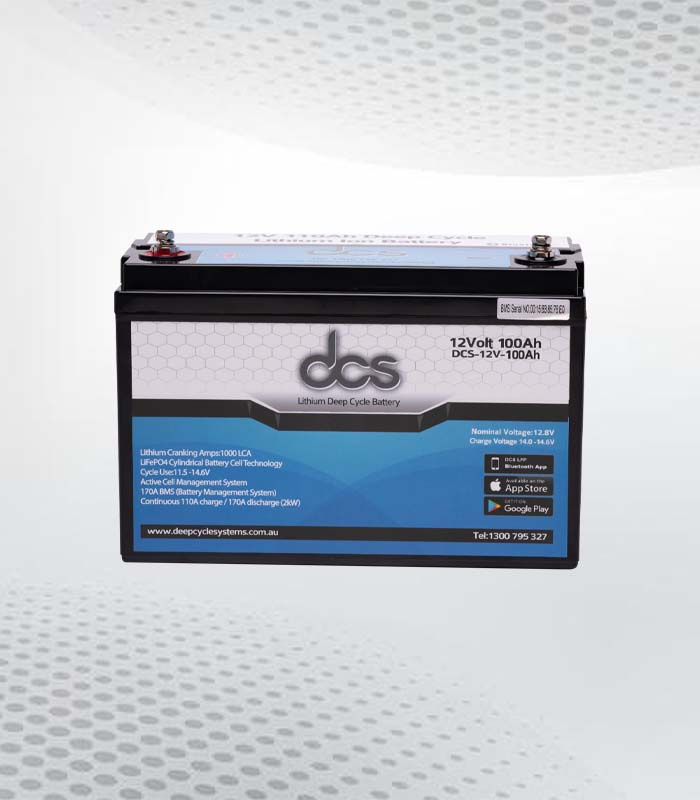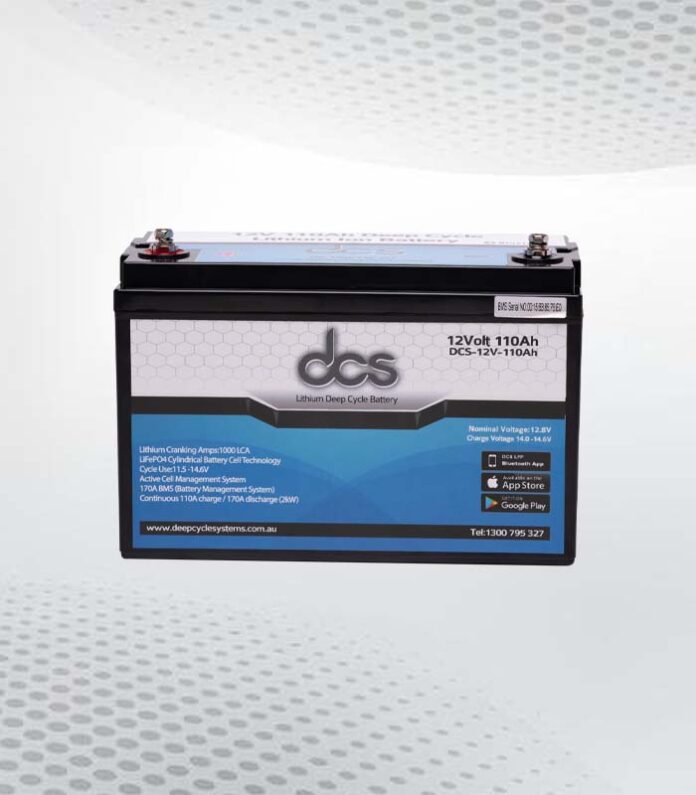Lithium-ion batteries have become the preferred power source for many applications due to their impressive energy density and long-term durability. But what does it mean for a lithium-ion battery to be durable? This blog post will explore the durability of a 12v 100ah lithium-ion battery , comparing it to other battery types and looking at how its performance holds up in different scenarios. Read on to learn more about the durability of a 12V 100Ah lithium-ion battery!
What is a 12v 100ah lithium battery?
A 12v 100ah Lithium Battery is a type of rechargeable battery that uses lithium ions to generate electrical energy. It consists of two electrodes, a positive electrode (cathode) and a negative electrode (anode), which are separated by an electrolyte and a porous separator. Lithium ions move from the cathode to the anode during discharge, creating a flow of electrons that can be used to power various devices. One of the main advantages of lithium-ion batteries is their high energy density, meaning they can store a significant amount of energy in a compact, lightweight design. That makes them a popular choice for portable electronics, electric vehicles, and even renewable energy storage systems.
Lithium-ion batteries have a longer life and higher efficiency
Compared to traditional lead-acid batteries, lithium-ion batteries have a longer lifespan and higher efficiency. They also have a lower self-discharge rate, meaning they can retain their charge for longer periods of time. Additionally, lithium-ion batteries can be charged and discharged multiple times without experiencing the “memory effect” that plagues other types of rechargeable batteries. Overall, lithium-ion batteries offer a reliable and long-lasting power source for a wide range of applications. Their high performance and long lifespan make them a cost-effective and environmentally friendly choice for industrial and consumer needs.
How does a lithium-ion battery work?
A lithium-ion battery operates on a complex process involving the movement of lithium ions between two electrodes: a positively charged cathode and a negatively charged anode. The electrodes are separated by an electrolyte, which allows the flow of ions while preventing direct contact between the electrodes. During the charging process, lithium ions move from the cathode to the anode, creating a buildup of positively charged lithium ions at the anode and negatively charged ions at the cathode. When the battery is connected to a load, such as a device, the flow of electrons from the anode to the cathode occurs through an external circuit, creating an electric current.
Advantages of a 12V 100Ah lithium-ion battery
A 12V 100Ah lithium-ion battery offers numerous advantages over traditional lead-acid batteries. First, it has a much higher energy density, meaning it can store more energy in a smaller, lighter package. That makes it ideal for applications where weight and size are a concern, such as in portable electronics or electric vehicles. Additionally, lithium-ion batteries have a longer lifespan compared to lead-acid batteries. They can handle hundreds or even thousands of charge and discharge cycles without significant performance degradation. That translates to cost savings in the long run, since you won’t need to replace the battery as often.
High efficiency of lithium-ion batteries
Another advantage is the high efficiency of lithium-ion batteries. They have a lower self-discharge rate, which means they can hold their charge for longer periods of time. That makes them suitable for standby or backup power applications, as well as off-grid solar systems. Additionally, lithium-ion batteries offer faster charging times compared to lead-acid batteries. They can be charged to full capacity in a fraction of the time, allowing for more efficient use of the battery. The 12V 100Ah lithium-ion battery provides higher energy storage capacity, longer lifespan, higher efficiency, and faster charging times, making it a superior choice for a wide range of applications.
Durability factors of a lithium-ion battery
When it comes to the durability of a lithium-ion battery, several factors come into play. First and foremost is the quality of the materials used in its construction. A high-quality lithium-ion battery is built with reliable and durable components that can withstand the demands of daily use. Another factor that affects the durability of a lithium-ion battery is its temperature range. Extreme temperatures, whether too hot or too cold, can significantly affect the performance and lifespan of the battery. It is crucial to ensure that the battery is not exposed to extreme temperatures to maintain its durability.
Charging and discharging a lithium-ion battery
Additionally, the charge and discharge cycles of a lithium-ion battery can also affect its durability. Overcharging or discharging the battery beyond recommended limits can damage the internal structure, resulting in a decrease in its lifespan. Additionally, the discharge rate also influences the durability of a lithium-ion battery. Fast discharge rates can put stress on the battery and reduce its overall lifespan. It is essential to use the battery within its specified discharge rate to maximize its durability.
Testing the durability of a 12V 100Ah lithium-ion battery
When investing in a lithium-ion battery, it is essential to know how durable it is and how it will hold up over time. To ensure that the 12V 100Ah lithium-ion battery can withstand the demands of daily use, rigorous testing is performed. During durability testing, the battery is subjected to various stressors to assess its performance under different conditions. Those tests typically include temperature cycling, overcharging, overdischarging, and vibration testing. The battery is monitored throughout those tests to determine its capacity retention, cycle life, and overall durability.
The 12V 100Ah lithium-ion battery undergoes extensive testing
The 12V 100Ah lithium-ion battery undergoes extensive testing to ensure that it can handle the demands of various applications. It is tested to withstand extreme temperatures, ranging from intense heat to extreme cold, without compromising its performance or lifespan. By subjecting the battery to rigorous testing, manufacturers can ensure that the 12V 100Ah lithium-ion battery is built to last. That durability is crucial, especially in applications such as renewable energy storage, marine and RV use, and off-grid power systems, where reliability and longevity are essential. Overall, through extensive durability testing, the 12V 100Ah lithium-ion battery proves its ability to withstand the challenges of everyday use, providing users with a reliable and long-lasting power solution.
Factors that affect the life of a lithium-ion battery
The lifespan of a lithium-ion battery is influenced by several factors that users need to consider. One of the key factors is the depth of discharge (DoD), which refers to how much of the battery’s capacity is used before it is recharged. Running a lithium-ion battery at a high DoD, such as discharging it completely before recharging, can shorten its lifespan. It is recommended to keep the DoD between 20-80% to maximize battery life. Temperature is another significant factor. High temperatures can cause the battery to degrade more quickly, reducing its overall lifespan. It is important to avoid exposing the battery to extreme heat or cold to ensure optimal performance and lifespan.
Charging rate also plays a role in battery life
Charging speed also influences battery lifespan. Fast charging or high charging currents generate more heat and can negatively impact battery durability. It is recommended to charge the battery at a moderate rate to extend its lifespan. Lastly, the number of charge and discharge cycles affects the lifespan of a lithium-ion battery. Each time a battery goes through a charge and discharge cycle, its capacity decreases slightly. Therefore, reducing the frequency of deep discharge cycles and implementing a regular charging routine can help extend the overall lifespan of the battery. By understanding these factors and properly caring for a 12V 100Ah lithium-ion battery, users can ensure maximum durability and get the most out of their investment.

Tips to maximize the lifespan of a 12V 100Ah lithium-ion battery
- Proper Charging: Lithium-ion batteries require a specific charging protocol to ensure their longevity. It is important to use a charger specifically designed for lithium-ion batteries and follow the manufacturer’s charging guidelines.
- Avoid extreme temperatures: Exposing one to extreme temperatures, such as cold or scorching heat, can degrade its performance and reduce its lifespan.
- Handle with care: Avoid dropping or subjecting the battery to impact, as this may damage internal components and reduce its durability.
- Do not fully discharge: It is recommended not to fully discharge the battery before recharging it. Lithium-ion batteries have a limited number of charge cycles and deep discharge can accelerate battery wear.
- Store it properly: If you are not going to use the battery for a long period, be sure to store it in a cool, dry place.
Frequent questions
1. How long does a 12V 100Ah lithium-ion battery last?
The lifespan of a 12V 100Ah lithium-ion battery can vary depending on several factors, including usage, charging habits, and environmental conditions. On average, a well-maintained lithium-ion battery can last between 5 and 10 years.
2. Can a 12V 100Ah lithium-ion battery be used in extreme temperatures?
Lithium-ion batteries are generally designed to operate within a specific temperature range. While some batteries can tolerate slightly higher or lower temperatures, extreme heat or cold can significantly affect their performance and overall lifespan.
3. Can a 12V 100Ah lithium-ion battery be overcharged?
Overcharging a lithium-ion battery can be harmful to your health and safety. Most modern lithium-ion batteries come equipped with built-in protection circuits that prevent overcharging.
4. Can I use a 12V 100Ah lithium-ion battery in a solar power system?
Yes, a 12V 100Ah lithium-ion battery can be used in a solar power system. In fact, lithium-ion batteries are becoming increasingly popular for renewable energy applications due to their high energy density, longer lifespan, and lower maintenance requirements.
5. Can I use a 12V 100Ah lithium-ion battery for my RV or marine application?
Absolutely! The compact size, lightweight design, and high energy density of a 12V 100Ah lithium-ion battery make it an excellent choice for marine and RV applications. Whether you need to power your onboard appliances, run your electronics, or provide backup power, a lithium-ion battery can deliver reliable and efficient performance.
Conclusion
The 12V 100Ah lithium-ion battery is a long-lasting and reliable power source for various applications. Its unique construction and chemical composition allow it to deliver consistent power over an extended period of time. The 12V 100Ah lithium-ion battery is a reliable and long-lasting power source that can meet the demands of various applications. By understanding its construction, taking precautions, and following best practices, users can extend its lifespan and enjoy consistent performance. So, whether you are powering your RV, boat, or solar system, a lithium-ion battery is a good choice for reliable and long-lasting power.
This Article Was First Published On:
Exploring the Durability Of A Lithium Ion Battery 12v 100ah

